
https://ebookmass.com/product/station-zero-philip-reeve/
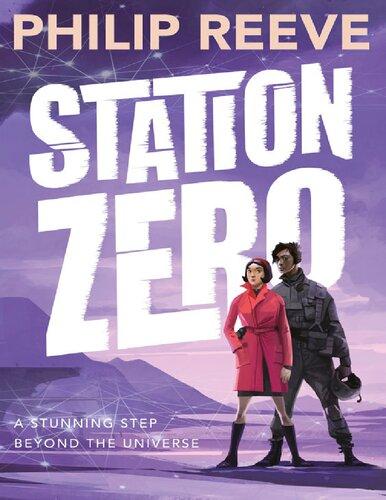
Instant digital products (PDF, ePub, MOBI) ready for you
Download now and discover formats that fit your needs...
Pumping Station Design, 3rd Edition
https://ebookmass.com/product/pumping-station-design-3rd-edition/
ebookmass.com
Until Waverly Tl Reeve & Michele Ryan & Boom Factory Publishing
https://ebookmass.com/product/until-waverly-tl-reeve-michele-ryanboom-factory-publishing/
ebookmass.com
Until Posey Tl Reeve & Michele Ryan & Boom Factory Publishing
https://ebookmass.com/product/until-posey-tl-reeve-michele-ryan-boomfactory-publishing/
ebookmass.com
Geography For Dummies, 2nd Edition Jerry T. Mitchell
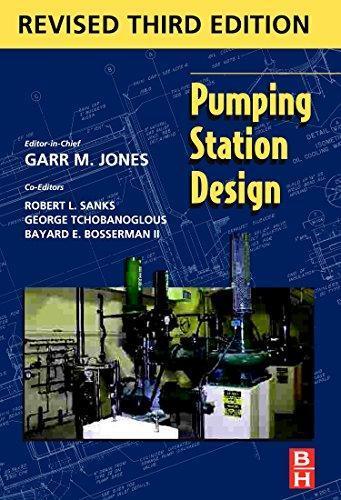


https://ebookmass.com/product/geography-for-dummies-2nd-edition-jerryt-mitchell/
ebookmass.com

Complexity and Complex Chemo-Electric Systems Stanislaw Sieniutycz
https://ebookmass.com/product/complexity-and-complex-chemo-electricsystems-stanislaw-sieniutycz/
ebookmass.com
Proteins Galanakis
https://ebookmass.com/product/proteins-galanakis/
ebookmass.com
Global Sports and Contemporary China: Sport Policy, International Relations and New Class Identities in the People’s Republic Oliver Rick
https://ebookmass.com/product/global-sports-and-contemporary-chinasport-policy-international-relations-and-new-class-identities-in-thepeoples-republic-oliver-rick/
ebookmass.com
Environmental Science: A Global Concern, 16e ISE 16th/ISE Edition William P. Cunningham
https://ebookmass.com/product/environmental-science-a-globalconcern-16e-ise-16th-ise-edition-william-p-cunningham/
ebookmass.com
Biomass Valorization: Sustainable Methods for the Production of Chemicals Davide Ravelli
https://ebookmass.com/product/biomass-valorization-sustainablemethods-for-the-production-of-chemicals-davide-ravelli/
ebookmass.com
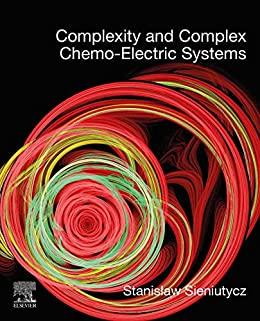




https://ebookmass.com/product/disruptive-technology-in-banking-andfinance-an-international-perspective-on-fintech-timothy-king/
ebookmass.com
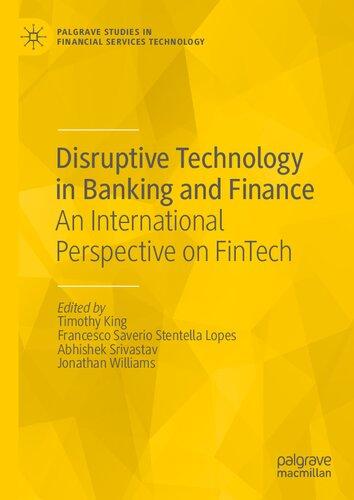
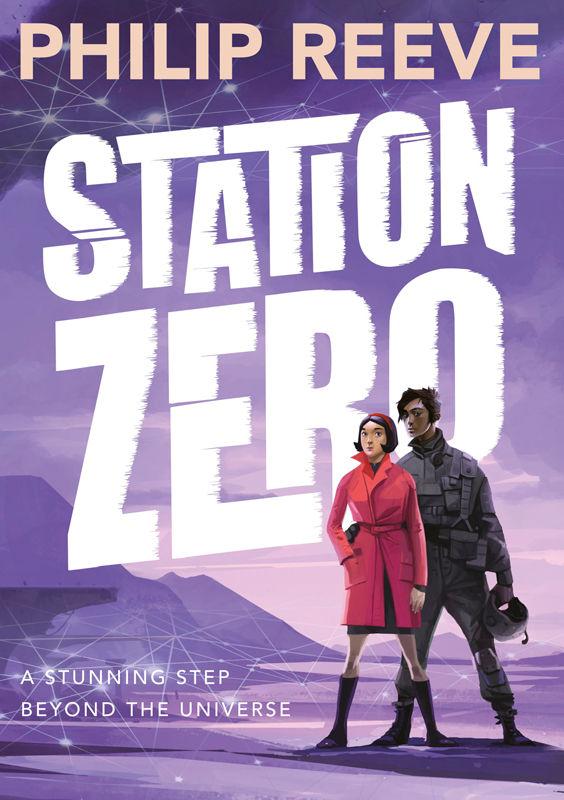


Praise for Railhead and Black Light Express, Zen and Nova’s previous adventures
‘Philip Reeve has always been a writer of extraordinarily fertile imagination and his latest, Railhead, is a long-anticipated event that more than lives up to expectations.’
Sunday Times
‘Railhead is superb.’ Telegraph
‘An electrifying triumph.’
Daily Mail
‘A dizzying philosophical space opera from the Mortal Engines creator, it has the broad scope, richness and originality of vintage Iain M. Banks.’ Guardian
‘A pleasing mix of the retro and futuristic, with an off-kilter love story at its heart.’ Financial Times
‘A sort of sci-fi creation story, a quest, and a fantastic adventure ’ School Librarian
‘Imaginative and compelling This book grabs you and takes you into a futuristic world ’ Parents in Touch
‘For sheer power of imaginative world building Philip Reeve is hard to beat ’ magicfictionsincepotter.co.uk
Contents
Praise
Part One: New Money
Chapter 1
Chapter 2
Chapter 3
Chapter 4
Chapter 5
Chapter 6
Chapter 7
Chapter 8
Chapter 9
Chapter 10
Part Two: Shadow Babies
Chapter 11
Chapter 12
Chapter 13
Part Three: Images Of Elsewhere
Chapter 14
Chapter 15
Chapter 16
Chapter 17
Chapter 18
Chapter 19
Chapter 20
Chapter 21
Part Four: The Heaven Heist
Chapter 22
Chapter 23
Chapter 24
Chapter 25
Chapter 26
Chapter 27
Part Five: Trainsong
Chapter 28
Chapter 29
Chapter 30
Chapter 31
Chapter 32
Chapter 33
Chapter 34
Chapter 35
Chapter 36
Chapter 37
Chapter 38
Chapter 39
Chapter 40
Part Six: Station Angels
Chapter 41
Chapter 42
Glossary
Thank You
Dedication
Copyright


The train-wind was blowing. It found its way through the tunnels to the platform where Zen waited. It stirred the litter that lay between the tracks. It ruffled Zen’s hair and plucked at the tattered sackcloth robes of the other travellers who waited all around him. Zen was the only person on the platform, but it was more crowded than he had ever seen it.
His fellow travellers were all Hive Monks, shambling insect colonies which had made human-shaped armatures for themselves and draped them in grimy robes. The crude white paper masks that were their faces stared towards the tunnel mouth, and the train-wind touched them like a warm breath.
The wind smelled of dust and the black kilometres beneath the mountains. It smelled of the faint electric scent of the K-gates through which a train could cross a thousand light years in a heartbeat. It smelled of the trains themselves, and now it brought with it the sound of a train, too, the deep roar of engines, a strange voice raised in song, both rising as the wind rose until a blaze of lights appeared there in the darkness and the train gathered itself out of the shadows and the racing reflections on shining rails.
Lost Hive Monk faces blew past Zen like paper plates at a windy picnic. For a moment the alien loco loomed over him: an insectoid morvah from the Nestworlds of the Neem, beetle-shiny, blazing with bioluminescent light, long cockroach feelers rasping along the station roof. Then the line of windowless carriages it towed was passing, slowing, stopping.
‘The train at Platform 1 is for Hive Monks only,’ said the voice of the station AI, as if any human would be foolish enough to want to board it. ‘Hive Monks only on Platform 1.’
The Hive Monks buzzed and sighed and swayed. A few were so excited that they lost their vague human shapes completely, robes crumpling, lost bugs scuttling mindlessly across the platform or fluttering upwards to ping against the lamps. The rest surged through the open doors into the hot, dark, insect-stinking carriages.
Zen went with them, keeping his face down, trusting to the tide of ragged robes around him to hide him from the station’s cameras. He stood among the Hive Monks in the seatless carriage, in the dim red glow from the overhead lights. The doors slid shut. The Hive Monks whispered to one another. Zen stared at the bug-scuttling floor and waited for the train to move. What was the delay? Had someone spotted him? Would the doors open again and police come aboard to drag him back onto the platform? His heart was hammering as hard as it used to when he was just a young railhead, riding the interstellar trains with stolen trinkets in the pockets of his coat.
But that had been years ago. He was not a railhead any more. He was just Zen Starling, rich and famous and unhappy, and the only thing that he was stealing was himself.
He had not planned to become a fugitive again. It had come at him fast, the way life does. Just twenty-four hours earlier he had been looking lazily down on the sunlit station city from the cabin of his luxury air-car as it circled above the Noon family’s corporate palace, waiting for permission to land. He was wearing a perfectly tailored Kitty Mbakwe video-fabric suit and boots made from the hide of an alien worm. His Baxendine headset was so expensive and delicate that it looked like a silvery tattoo curling across the brown skin beside his right eye.
He had been living on Galatava for almost a year by then. It was a pleasant world, with forests and mountains and oceans and a pretty ring system which the Galatavans said made their night sky so much more interesting than night skies were on planets that only had a few boring old moons. It had never been a major station because it had
only two K-gates, one leading to Sundarban, the other to the volcanic moon Khoorsandi. But when the Network Empire split in two, Galatava had suddenly become important.
Most of the lines and stations of the Empire were under the control of the new emperor, Elon Prell, but the Noon family were holding on jealously to their own planets on the western branch lines. Their only hope of surviving, now that they had cut themselves off from trade with the rest of the Empire, lay on Khoorsandi. There a new K-gate had been opened which led to a whole new empire: an alien network called the Web of Worlds. The aliens seemed just as keen on trade as humans were, so trains from the Noon worlds were pouring through the Khoorsandi gate and returning laden with strange freight and stranger passengers. Since Khoorsandi didn’t have enough stable land to hold all the rail yards and warehouses and freight terminals for the new trade, Galatava, one stop up the line, was expanding its station city rapidly.
The Noons’ corporate palace perched on the edge of a crag, looking down over the parks and rooftops of the city to the shining waters of the Hana River It was a tiny palace by the standards of a corporate family, and little more than a summer house compared to the Noons’ vast compounds on Sundarban, but like the rest of the city it was getting bigger, growing extra wings and turrets for itself inside cages of biodegradable scaffolding.
Zen had plenty of time to admire it all, because the palace security AI made his air-car circle for ten minutes before giving it permission to land. A pair of unicorns, which had been grazing the bluegrass lawns, cantered gracefully away as the car extended its wheels, folded its wings, and settled itself on a circular gravel parking bay.
Zen opened the canopy. He could hear music and a blur of voices drifting from the palace. It wasn’t a party exactly, more of a pre-party Tomorrow Threnody Noon would be travelling through the new Khoorsandi gate to the world known as the Hub, there to celebrate the end of the war against the Kraitt and sign more trade agreements with the other alien species. This gathering on Galatava was meant to welcome all the important Noon dignitaries who were arriving from Sundarban and Marapur to join her train. It would also serve as a
consolation to less important ones like Zen, who weren’t invited to the ceremony in the Hub.
As he stepped out of the car, an alien machine like a giant, armoured spider crab came ambling past with laughing children clinging to its back. It was one of the Neem, who were the Noons’ main allies out on the new Network. There were about a million insects operating that crab-suit, and Zen could hear them seething about inside it when it came over to talk to him, attracted by the sight of his air-car. ‘Is that a Nagana Nebula?’ it asked in its rustly voice. ‘The new 500 series?’
‘Five-oh-two,’ said Zen, hoping that he was not going to get drawn into a long conversation about it. The Neem were fascinated by human technology, the faster and sleeker the better. It was very good for trade, but it did mean that they tended to be awful car bores.
Luckily, the kids on the suit’s back were enjoying their ride too much to let it stop for long. ‘More! More!’ they yelled, banging their hands against its carapace.
The Neem said, ‘No rest for the wicked, eh?’ and went scuttling on.
When Zen looked back, the gravel bay holding his car was sinking down through the lawn into some underground garage. It came back up a moment later, empty and freshly raked, and another air-car landed on it.
Zen ran a hand through his beautifully cut, dark purple hair, and strolled towards the house, trying to look as if he belonged in such a place. Somewhere in there, among the party crowds, was Threnody Noon. Threnody was not a friend, exactly, but she and Zen had been comrades in some dangerous adventures and Zen hoped she would have the power to grant him what he wanted—permission to leave Galatava. Threnody’s people didn’t want her talking to the likes of Zen Starling and intercepted all his messages, but they couldn’t stop him talking to her in person. Not today. He had an invitation. He pinged it from his headset to the minds of the Motorik footmen who guarded the main door, and swaggered past them into the party.
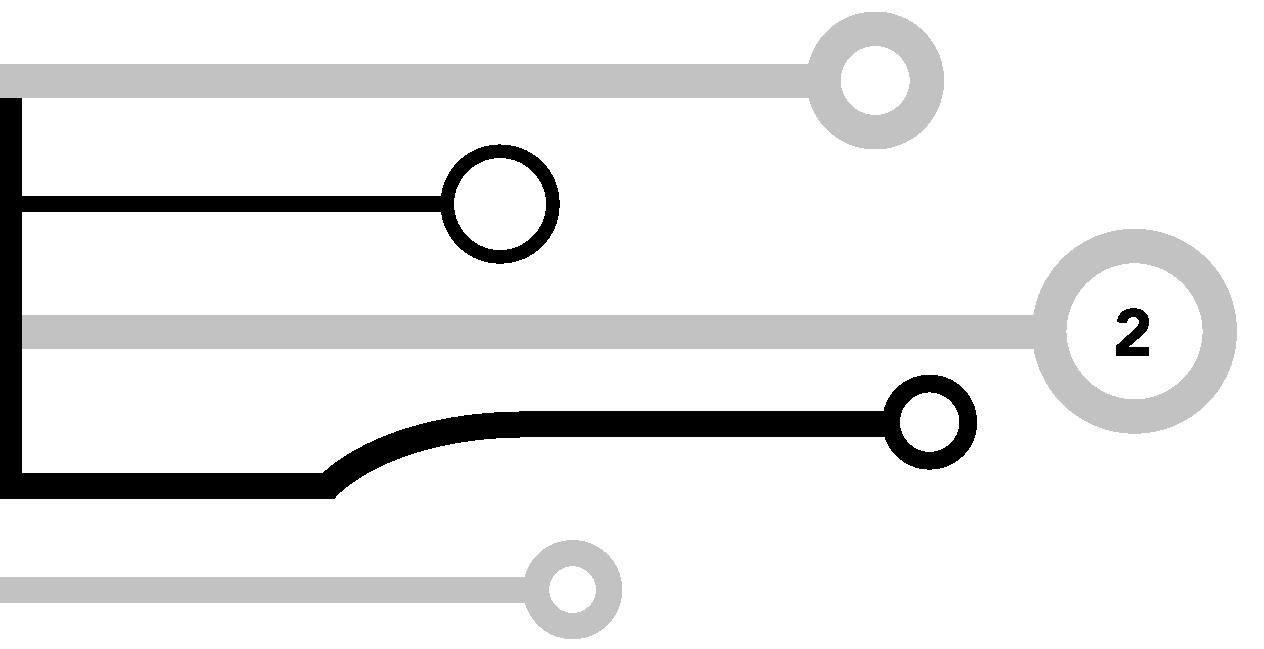
The object was not quite a moon. It was the shape of a peanut, the size of a biggish mountain, and it was one of the largest of the billion boulders which made up the outermost ring of Galatava’s nearest neighbouring planet, the gas giant Vapna.
Now, upon the object’s airless, elephant-grey surface, something untoward was happening. Dust which had not been disturbed for aeons stirred, rising in little eddies as if a wind were blowing. Above these dust-devils a glimmer of colourless light appeared, nothing like the sullen sulphur-yellow glow of Vapna. It grew brighter, and out of it came writhing a sort of tentacle. The light spread, and other tentacles emerged. The rock below them was altering, beginning to glow and thickly flow. The tentacles started sculpting it into a shape, a weird wishbone arch. As the arch formed, the light increased. More tentacles reached through it. The nose of something appeared, beaky and massive.
If anyone had been watching they would have known by now what was happening on the not-quite-moon. It was the same thing that had happened on Khoorsandi the year before. A K-gate was opening; the mouth of a wormhole which would lead through the mysterious dimension called K-space to another gate on some faraway world. But what could be the point of a K-gate on this lonely rock?
The bio-machine which made the gate was called a Worm. Its
blind, spiny bulk barely fitted through the arch that it had built. It squeezed itself out, trailing strands and streamers of the ghostly light, and crept across the moonlet’s surface, laying sleepers and a double pair of shining rails behind it the way some huge bug might lay its eggs.
On another world it would have gone much faster, extending the rails until it could join them to an existing line and link its new gate to the rest of the Network. Here, it had nowhere to go. It crept for five hundred metres over the moonlet’s steep, stony face, then stopped. Spines and tentacles probed the airless dark, as if the Worm sensed its mistake. Then it reversed at surprising speed and vanished through the curtain of light which hung inside the new-formed arch.
The curtain shifted and rippled for a moment, like the surface of a vertical pool. After a moment something else emerged through it: a knot of light which drifted with odd dancing motions along the newlaid tracks and then took flight like thistledown, fading into the dull glare of Vapna.
Then the light died, and only the arch was left, skeletal and lonely on the grey rock, as if it had been standing there forever

The Noon palace was full of sights and smells from other planets. Perfumes and fabrics from the Web of Worlds had become all the rage since the new Khoorsandi gate had opened. As Zen pushed his way past other party-goers he caught wafts of alien scent which took him back to worlds he’d walked upon last year with Nova. There were actual aliens present too: Deeka with their internal organs pulsing like jellyfish inside their transparent bodies; a pair of highhorned Herastec diplomats. The human guests crowded around these exotic visitors, but some of them still had time to notice Zen as well. He felt their eyes on him as he moved through the big, crowded rooms. He caught their stagey whispers. ‘So that’s Zen Starling? He is not bad looking, for a common railhead.’
‘The rumour is that he is some sort of long-lost Noon relative. That is why they tolerate him.’
‘Really? I heard that he used to be a street-thief on Kalishti.’
‘It was Cleave, actually,’ Zen said, glancing at the woman who’d spoken, watching her turn away, embarrassed, while her friends leaned in to share more gossip about him. He wondered what they would say if they knew the real story. He wondered how they would look at him if they knew that he had been to blame for the Spindlebridge disaster and the destruction of the Noon train.
At the far side of the room, big windows had folded themselves aside to let people out onto a verandah with views down over the city. There was flute music, and the chiming kiss of finger-cymbals.
Pretty blue dancers with animatronic wings made graceful shapes in the sunlight. The idea behind the ballet was that somewhere on the Web of Worlds the Noons had found a planet where these angels lived, and brought some of them back here to dance for their guests. But Zen had travelled the new lines himself, and the only aliens he’d met there who were remotely humanoid had been the Kraitt. There was nothing angelic about the Kraitt …
In the crowd around the dancers he spotted Threnody, recognizing her by the cloud of red dragonflies which hung above her elaborate new hairdo. The dragonflies weren’t just for decoration, they were miniature security drones, programmed to protect her. They swung compound eyes and micro-guns towards Zen as he shoved his way rudely through the crowd. Threnody turned too, greeting him with an uncertain smile.
The Noons called Threnody their Chief Executive now, but she still looked like an empress to Zen, in her shimmercloth sari and her headdress of alien coins. He had liked her better the way she had been last year, when she was a fugitive, scruffy and crop-haired and startlingly determined. She looked prettier now, but less confident, as if this soft life on Galatava was proving as bad for her as it was for Zen.
‘I need to ask you something,’ he said.
Before she could answer, the dancers did something which caused a ripple of applause and drew her attention back to them, and before he could speak to her again a hand took his arm. ‘This is not a good time, Zen,’ said Kala Tanaka, as she steered him firmly away.
‘I just wanted to talk to Threnody!’
‘You should have sent her a message.’
‘I’ve been sending her messages. She never replies. I don’t think they even reach her. You screen them, don’t you? You don’t want her talking to a common railhead.’
‘Lady Threnody is extremely busy. She has a company to run.’
‘Yes, she does. It’s called Noon-Starling Lines. And I’m Starling; it’s my company too.’
‘It’s called the Noon Consortium, Zen—‘Noon-Starling Lines’ was a
proposal which the family council rejected. And you are a silent partner, with the emphasis very much on silent.’
Kala was Threnody’s assistant, or perhaps her keeper: a small, plain, middle-aged woman who had somehow made herself one of the most powerful people on the Noon worlds. She was polite, efficient, and absolutely determined to keep Threnody as far away as possible from the likes of Zen Starling.
‘I heard she’s taking a train through the new Khoorsandi gate tomorrow,’ said Zen. ‘Back to the Hub. I was wondering why I haven’t been invited.’
‘It is an official visit.’ Kala had this way of smiling as she spoke so that to the other guests it must have looked like she and Zen were friends, but her grip on his arm was steely. There was steel in her voice, too. ‘Lady Threnody is to celebrate our victory over the Kraitt, and sign new trade deals with the Deeka and the Herastec.’
‘I could help her,’ said Zen. ‘The aliens know me. I was travelling the Web of Worlds for months before Threnody got there. I’m the first human they ever met. They trust me.’
Kala Tanaka sighed. She bowed to a passing acquaintance—a fat, cheerful Stationmaster from one of the Silver River industrial planets —and then turned sharply right, propelling Zen down some steps into a domed glass building. The building had an airlock, and when Zen stepped through the inner seal he found himself in a forest of crystalline shrubs and pale alien trees. Circular leaves spun like toy windmills, filling the dome with papery whisperings. The Noons loved plants, and had brought back all sorts of exciting new species from the alien worlds, but it was too soon to tell if these wind-trees from Hath were compatible with the plant-life humans knew, so they were growing for the time being in enclosed biomes.
‘The aliens may trust you, Zen,’ said Kala Tanaka, ‘but we do not. We both know why you really want to go back to the Hub. You are hoping to find Nova again.’
‘No,’ said Zen, ‘I’ve forgotten all about Nova, like you said I should.’ But she knew he was lying. To lie well you had to halfbelieve in the lie yourself, and Zen did not believe that he would ever forget about Nova. It was almost a year since she had set off without
him into the Black Light Zone, but she was still the first thing he thought of when he woke each day and the last thing he thought of before he went to sleep.
They followed a spiral pathway through the plantings to the centre of the biome. Kala let go of Zen’s arm and sat down on a bench beside a pool. Zen stayed standing. Alien jellyfish-things drifted just beneath the surface of the water like lost lace handkerchiefs.
‘We have heard nothing from the Guardians for months,’ Kala said, as if she were changing the subject. ‘After all that fuss when the new gate opened, they seem to have just gone back into the Datasea and forgotten about us.’
‘Well, that’s good, isn’t it?’ said Zen. He’d had more experience than most human beings with those all-wise, all-powerful artificial intelligences, and he knew that life was simpler if you did nothing to attract their attention.
‘They haven’t really forgotten us, of course,’ said Kala. ‘Our data divers believe there is a sort of stalemate. Half of the Guardians want Elon Prell to crush the Noon Consortium and shut the Khoorsandi gate, cutting humans off again forever from the Web of Worlds. The others are willing to let us keep dealing with the aliens, as long as we don’t try to pry into the secrets of the Black Light Zone. It is a delicate balance. If you were to go running off after Nova into the depths of the Zone, that might upset things.’
Zen flung a pebble into the pool to startle the handkerchief-things and said, ‘All right. Let me go the other way then. I still haven’t seen my mum and sister.’
‘On Summer’s Lease?’ Kala shook her head. ‘That’s Prell territory, and the Prells would love to pick you up. Interrogate you. Learn your secrets and use them against us. And if they found out that Latika and Myka are your mother and sister they could threaten them too.’
She talked about Zen’s family as if she knew them, and in a way she did, for her intelligence people had been keeping an eye on them, ferrying secret messages between them and Zen. He had been able to tell Myka that he was all right, and hear that she and Ma were well, but that was all. He missed them almost as badly as he missed Nova.
‘So I’m a prisoner here?’
Kala fiddled for a while with the Herastec brooch she wore on the shoulder of her black suit. ‘How old are you, Zen?’ she said at last. ‘Eighteen? Nineteen?’
Zen shrugged. He wasn’t sure. How could he be, growing up on so many different worlds, where years and days had different lengths? ‘About nineteen standard,’ he said.
‘Nineteen. And look at you. You’re wealthy! You have an air-car, the best clothes, a house of your own. We are letting you share in the riches of this new trade we are building! All we ask in return is that you stay here quietly on Galatava and enjoy your new-found fortune. We are planning to open negotiations with the Empire soon. In a year or two the situation may have settled down. Perhaps then we can reconsider.’
‘A year or two?’ Zen knew he sounded like an angry child, but that only made him angrier.
‘I know how it feels,’ said Kala gently. ‘You miss the trains. I was a railhead just like you when I was young. But I made something of myself. I raised myself up. And do you know how I did it?’
‘By sleeping with Threnody’s uncle Nilesh?’
‘By being patient, by doing what the Noons wanted, and being prepared to wait for the things I wanted.’ She came off the bench and put a hand on his arm again, gently this time, almost motherly. ‘Zen, I think you may be suffering from culture shock. There’s a lot of it about since Khoorsandi gate was opened. A year ago nobody knew there were other civilizations in our galaxy; now trains from alien worlds arrive here daily. Human beings haven’t evolved to cope with so much change so suddenly. And you, you were out there on those alien lines for how many months? Before any other human knew they even existed! Stranded, all alone, thinking you would never get back … It’s no wonder you feel bad. It’s natural.’
‘I wasn’t alone,’ said Zen, ‘I was with Nova.’
‘A Motorik is no substitute for human company …’
Zen shrugged her hand away and left her there while he went angrily back out onto the terrace. Above the mountains a rosette of sunbeams poked out from behind high towers of evening cloud.
Huge projections were drifting above the city, airborne ships and heraldic dragons. Galatava’s rings stretched from horizon to horizon as a softly glowing pastel arch. The dancing was over. He could not see Threnody among the crowds.
He met some young Noon Consortium execs with whom he had gone clubbing last summer. Some of them had stayed overnight at Zen’s house a few times and been sick on his furniture. They wore holographic party clothes: shifting wrappers of light which only just concealed their painted bodies. They had lips like rose petals and fashionable rainbow eyes. Zen went indoors with them and drank sweet blue smoke from tall glass flutes. It was a drug from the Deeka worlds and it didn’t seem intoxicating until you had downed about five glasses and suddenly it was night somehow and everything was spinning.
The others treated Zen as a celebrity. They all wanted to hear about the adventures he’d had on the alien worlds. He told them how he’d fought the Kraitt; how he’d walked straight into the burrow of the Tzeld Gekh Karneiss herself to rescue Nova, and how the Neem had helped him out by shooting up the place and blowing it sky high as they made their getaway …
One of the girls said, ‘This Nova, she was just a wire dolly wasn’t she? Is it true she was your girlfriend out there? How does that even work, a human and a Moto?’
Zen tried to explain that Nova wasn’t just a wire dolly and that she had understood him better than anyone ever had. After that, all their laughter seemed suddenly aimed at him, and he knew they would take to the gossip sites later to tell their friends, ‘It’s true, Zen Starling was in love with that machine!’
Zen suddenly hated them all. He wanted to tell them that that their own expensive beauty couldn’t dim for a moment his memory of Nova’s cheap, mass-market face. He wanted to tell them that it was he and Nova who had sabotaged the old Emperor’s train and scattered the fashionably-dressed corpses of idiots like them all along the Spindlebridge. He tried, but they weren’t listening to him, and the music was a throbbing migraine and the blue smoke drinks had made him sad, and he stood up too fast and knocked a table
over and barged into a group of Deeka diplomats who burbled like water-beds. A servant, very polite and very firm, came to ask if he needed help finding his way out, but he said he didn’t, and sure enough, after only a few wrong turnings in the busy rooms, he went stumbling out into the cool, enormous night, trying to remember the code which would call his car to come and fetch him.

A hundred and twenty million kilometres away, an actual, honest-togoodness spaceship was streaking towards the gas giant Vapna. It had pointy bits at the front end and a bank of glowing exhaust cones at the back, and in between it was covered in random fins and turrets and hatches, and hundreds of little lighted windows. It had been launched a few hours earlier from a base on one of Vapna’s moons to investigate a strange burst of exotic particles, almost hidden in the electromagnetic blare of the gas giant.
The ship had no crew—which was lucky, since it was travelling at the sort of speeds which would turn anyone on board to purée. It existed only to carry a copy of the mind of the Guardian Mordaunt 90 Net. In a way, the ship was Mordaunt 90. A simple probe could have done the same job, but Mordaunt 90 was a fan of ancient sci-fi movies, and it thought a proper spaceship was more fun. He— Mordaunt 90 always thought of itself as ‘he’ these days—was very pleased with it. He enjoyed inhabiting that pointlessly streamlined hull as much as he enjoyed the beautiful bodies he had sometimes cloned for himself in the past. He launched a couple of little drones to take selfies as the ship began manoeuvring into an orbit around Vapna, because it just looked so cool
The ship’s searchlights swept the gloomy, elephant-grey surface of the largest boulder in the gas giant’s outer ring. A croquet-hoop shadow swung across the dust. The weird new arch stood bony and alone. The searchlight tracked along shining rails which stretched out from it for five hundred metres and then ended abruptly.
‘Oh cobblers,’ said Mordaunt 90. It was not looking forward one bit to telling the other Guardians about this.
Millennia before, back when all the human beings in the galaxy were crammed together on one small planet called Old Earth, the Guardians had discovered the Web of Worlds, a railway system which tied the galaxy together. They had made contact with the dataentity called the Railmaker which was busy building it, and, fearing its power, they had killed it. Then they sealed their local sections of the Web off from all the rest, and let humans believe that they had created it themselves. They had kept the existence of the Railmaker a secret until Zen Starling and the Motorik Nova had stumbled upon one of the Railmaker’s hub worlds. She had been affected there by some of the Railmaker’s technology, and had begun to change. Change how, and into what, the Guardians were not quite sure. Some of them had wanted to study her, others had simply wanted her destroyed, but before they could do either she had fled into the Black Light Zone, the mysterious region at the Web’s heart, a warren of wormholes through which they had not yet managed to track her
For a while they had all been very afraid. What if the Railmaker was not quite as dead as they had all thought? What if Nova’s meddling managed to revive it? But weeks went by, and then months, and nothing happened, and slowly they began to hope that nothing ever would happen. The Black Light Zone was an unknown region full of unknown dangers. The more optimistic of the Guardians believed that Nova had died out there beneath the black suns.
Now, suddenly, there was a new gate. But why here, on this lonely rock? And why had it opened and then simply closed again? Was the Railmaker reviving, and testing its powers? Or had Nova learned its secrets and started trying to use those powers herself? What was the point of using all that energy to make a gate which only stayed open for seconds? Unless …
With a deepening sense of alarm, Mordaunt 90 trained his instruments upon the gate again and detected faint, fading traces of something which had come through it while it was open.
It was a fundamental rule of the Network that only trains could pass through K-gates—if you tried to drive a truck or a shoot a bullet through it would just bounce off the energy curtain. But the lightforms which humans called Station Angels broke that rule. They were spindly, shimmering knots of energy which appeared around the gates sometimes, like glowing burps seeping out of K-space. The Guardians suspected they were spam, sent out by automated systems somewhere on the Web of Worlds, semaphoring messages from the long-dead Railmaker which no one understood. But perhaps the Angel that had emerged at Vapna had been a new sort, with a different purpose. Mordaunt 90 imagined it drifting in its gossamer-crane-fly way above the rails. Who had sent it? What message had it carried? And how had it planned to deliver it?
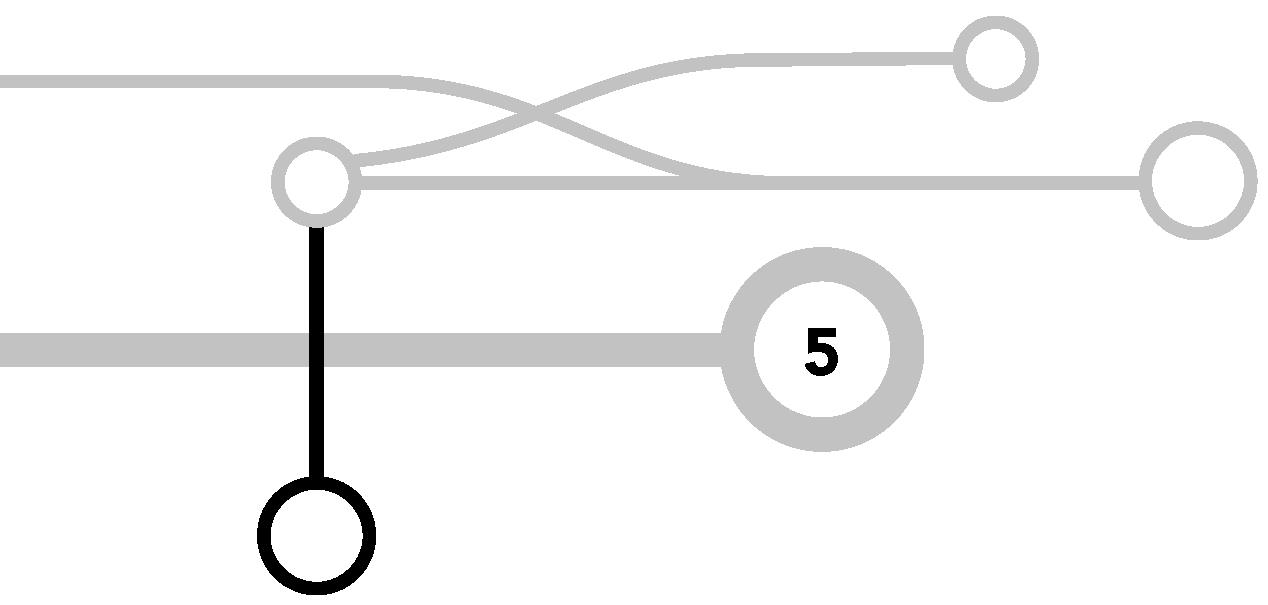
Threnody Noon left Galatava on the morning after the party, bound for the Hub to announce the end of the Kraitt War and the beginning of a dozen trade agreements with the empires of friendlier aliens. She travelled with her chief advisors and all the most important members of her family aboard the new Noon train, a line of statecars and armoured troop carriages drawn by the old red loco Damask Rose. The sun was already high when she set out. Crowds gathered near the open stretches of the line to cheer her on her way and admire the procession of angels and aliens that had been painted along the Damask Rose’s flanks by the famous Motorik graffiti artist Flex.
The Rose sang as she went, thrilling the spectators on the bridges above the line with her deep, booming whale-song rumble and high grace notes, and broadcasting the same song into the Datasea so that every other train on Galatava could hear. It was a new song, but it held echoes of songs that she had sung when she was carrying Zen on journeys down the Dog Star Line or on the alien lines beyond the Hub. Her voice carried right across the city in the calm, clear air. It found its way to the fashionable district called the Heights and across the gardens of a bio-mansion as white and shiny as a healthy tooth. It drifted through an open window, into the room where Zen slept half undressed and face down on his enormous new bed.
Zen’s house was a snob, like all old houses, and it had disapproved of its new owner from the start. For some hours it had
been making sarcastic comments about what a lovely morning it was through the speakers in the corners of Zen’s bedroom ceiling, and sending its automatic vacuum cleaners in to clean the carpet as noisily as they could, but none of that had woken Zen. The song of the Damask Rose was not nearly so loud, but it crept into his dreams somehow. It reminded him of journeys he had made with Nova, and the dreams were nice for a little while and then turned bad, because he was back on the Spindlebridge and the old Noon train was going to die and it was all his fault and he was shouting, trying to warn people, but they wouldn’t listen, and his frantic, weightless running took him nowhere and the train died anyway, the broken carriages cartwheeling past him, flinging him out of sleep.
He opened one eye, winced at the sunlight shining through the blinds, and sat up with a groan. He had just worked out that the distant trainsong was real when it suddenly cut off. The Rose had gone into the K-gate. She was still singing, but her song would be echoing across the red rocks of Khoorsandi now.
‘Breakfast, sir?’ suggested the house.
Zen ignored it and flopped back down. The bed seemed to be slowly revolving, but he thought that was an after-effect of the blue smoke, not an actual feature. He had drunk far too much of that stuff last night. The taste in his mouth suggested that drinking any of it at all had probably been a bad idea. He shut his eyes, and after-images of his nightmare flashed past him. Every night now he dreamed about the Noon train. When he was awake he could persuade himself that the disaster hadn’t been his fault. He had just been a hired thief doing what Raven ordered him to; he couldn’t have guessed that Raven was ruthless enough to wreck a whole train to cover his getaway. But his subconscious had no time for that excuse. While he was in danger on the Web of Worlds it had almost let him forget what he had done, but now that he was safe and rich on Galatava the awful dreams kept coming.
The house jangled an alarm at him. ‘There is a message for you, sir,’ it said.
Zen told it what it could do with its message.
‘That is impossible, sir. Also rude.’
‘Ping it to my headset, then,’ said Zen, who didn’t believe there was a message at all.
‘It says it is urgent.’
‘Who’s it from?’ groaned Zen, dimly wondering what idiot would send a message to him via his house instead of his headset.
‘I don’t know,’ said the house.
Zen groaned some more and rolled over onto his back. ‘Let’s see it, then.’
The message appeared on a holoscreen which the house positioned horizontally above the bed. It was a video image of Zen himself, asleep in a different bed. It mostly showed his face, but from the strange light which came and went across his features and across the pillow he knew at once which bed it was, and where. In case he wasn’t sure, a voice said, ‘Zen, do you remember Yaarm, the night the wind blew the curtain?’
He knew the voice, too. It was not the voice of the house. It was Nova.
The video cut out. In its place was a code: KF50.34.5817/3.48.1485
‘Remember this,’ the voice said. ‘I’ll be waiting.’
The number flashed three times, then vanished.
Zen sat up carefully. He was half afraid that he was dreaming, and he didn’t want to wake himself, because it was a good dream.
‘House,’ he said, ‘replay that message.’
‘What message, sir?’
‘You know.’
‘There have been no messages today, sir.’
‘You literally just played it. Look, the screen’s still there!’
The holoscreen hung blank and bright above his bed like a skylight.
‘There have been no messages today,’ the house said again, and Zen could hear a slight confusion in its voice. He didn’t think it was just messing him around. He didn’t think he was dreaming, either; he was standing by the bed now, everything felt real and vivid—he could feel his heart thumping, the carpet under his bare feet. He thought of the flashing code in the message and Nova’s voice
